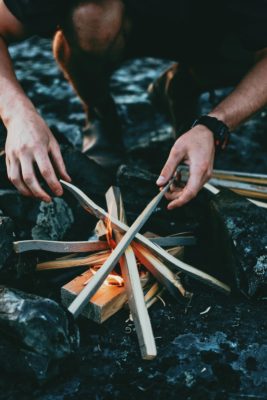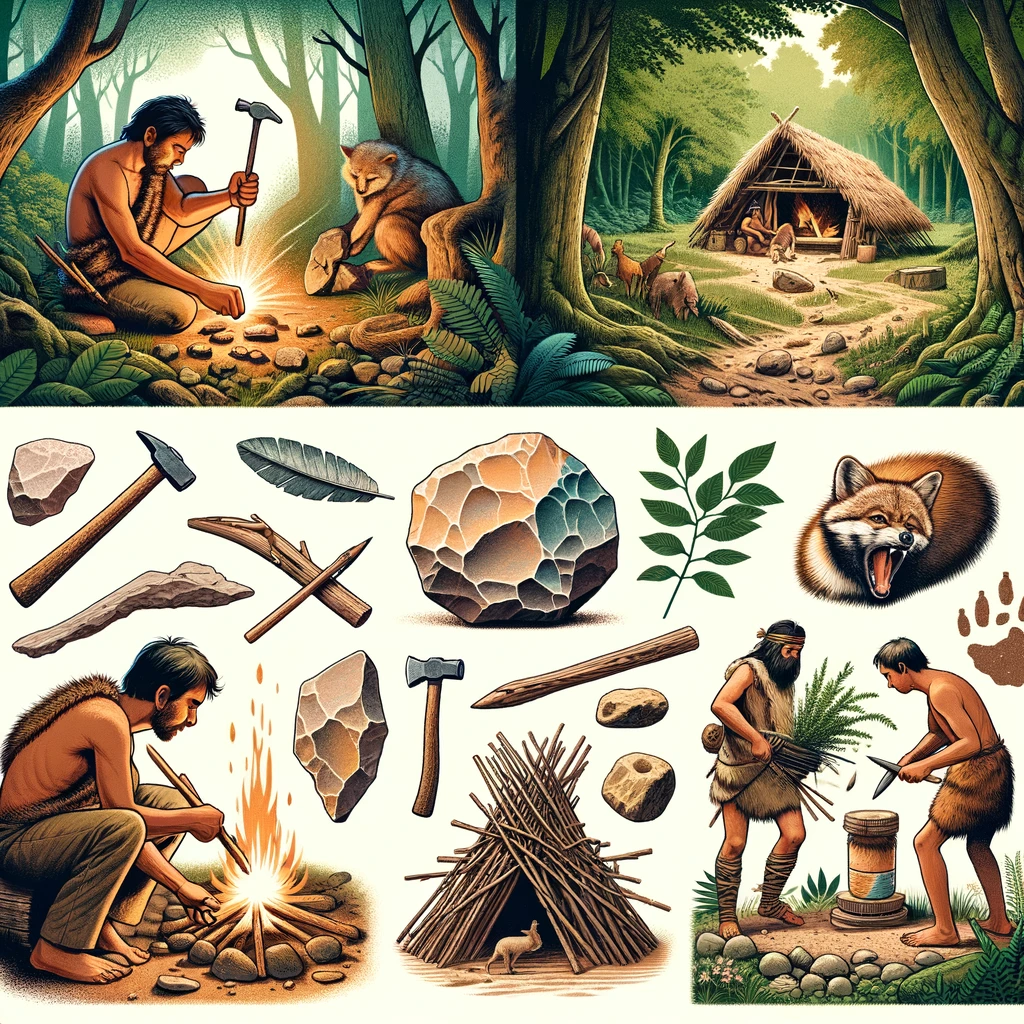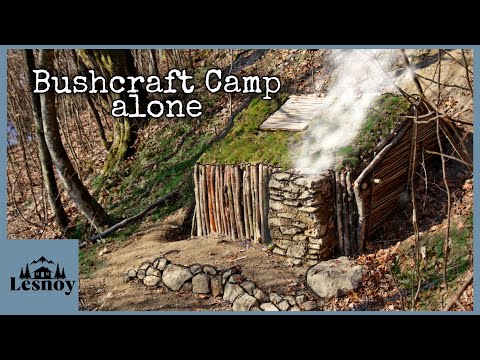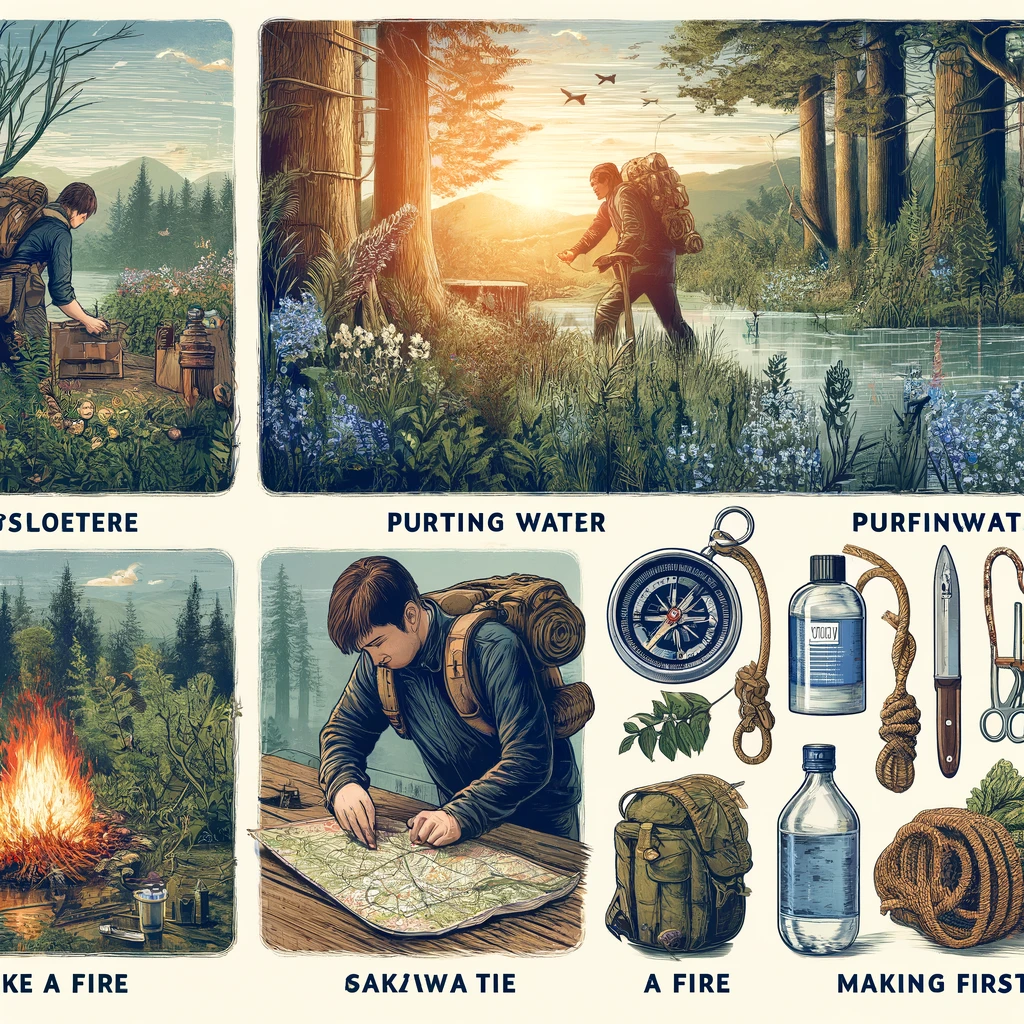The wilderness is a place of beauty and adventure, but it can also be a harsh and unforgiving environment. Whether you’re a prepper preparing for the worst or an outdoor enthusiast seeking adventure, it’s crucial to learn essential wilderness survival skills to keep yourself and your loved ones safe.
In this guide, we will cover everything you need to know to survive in the wilderness. From navigation and shelter building to finding food and performing first aid, these skills are critical in emergencies. So, let’s get started.
Navigation
 Navigation is one of the most critical skills for survival in the wilderness. Losing your way can quickly lead to exhaustion, dehydration, and exposure to the elements. Here are some basic navigation skills to help you stay on track:
Navigation is one of the most critical skills for survival in the wilderness. Losing your way can quickly lead to exhaustion, dehydration, and exposure to the elements. Here are some basic navigation skills to help you stay on track:
- Reading a map and using a compass: A map and compass are essential tools for navigation. Knowing how to read a map and use a compass will help you find your way in unfamiliar terrain.
- Identifying landmarks and natural signs: Landmarks such as mountains, rivers, and valleys can help you orient yourself in the wilderness. Natural signs such as the position of the sun, moon, and stars can also provide valuable information about your location and direction.
- Using the sun and stars to navigate: The position of the sun and stars can help you determine direction and time of day. Knowing how to use them can be a lifesaver in an emergency situation.
Shelter Building
In the wilderness, shelter can provide critical protection from the elements and help you stay warm and dry. Here are some basic shelter building skills to help you construct a safe and secure shelter: You can see a video example of bush-craft shelter building at one of our earlier posts here.
- Finding a suitable location for your shelter: Your shelter should be built in a location that is dry, sheltered from the wind, and close to a water source.
- Building a basic debris shelter: A debris shelter is a simple shelter made from natural materials such as branches, leaves, and grass. It’s easy to construct and can provide good protection from the elements.
- Building a lean-to shelter: A lean-to shelter is another simple shelter that can be constructed using natural materials. It’s designed to protect you from wind and rain and can be built quickly and easily.
- Building a long-term shelter: In some situations, you may need to build a long-term shelter that can withstand harsh weather conditions. This type of shelter requires more advanced skills and materials.
Fire Starting
Fire is essential in the wilderness for warmth, cooking, and signaling for help. Here are some basic fire starting skills to help you build a fire:
- Building a fire pit: A fire pit is a safe and controlled area where you can build a fire. It helps contain the flames and prevents them from spreading.
- Collecting and preparing firewood: Dry wood is essential for starting a fire. Collect wood that is dead and dry, and break it into small pieces for kindling.
- Using a firestarter or matches to start a fire: A firestarter such as a magnesium rod or a lighter can help you start a fire quickly and easily. Matches are also a reliable way to start a fire.
- Building a fire in wet conditions: In wet conditions, starting a fire can be challenging. Knowing how to find dry wood and use natural firestarters such as birch bark, pine resin, or fatwood can increase your chances of success.
Water Sourcing and Purification
Water is essential for survival, but finding clean water in the wilderness can be a challenge. Here are some basic water sourcing and purification skills to help you stay hydrated:
- Identifying potential water sources: Look for sources such as streams, rivers, lakes, and natural springs. Avoid stagnant or dirty water sources.
- Purifying water: Boiling water is the most reliable way to purify it. You can also use water purification tablets, filters, or UV purifiers.
- Collecting rainwater: In some situations, you may need to collect rainwater for drinking. Make sure to collect it in a clean container and purify it before drinking.
Finding Food
In the wilderness, finding food can be a challenge, but it’s essential for survival. Here are some basic skills to help you find food:
- Identifying edible plants: Learn to identify edible plants in the wilderness such as berries, nuts, and roots. Avoid plants that are poisonous.
- Hunting and fishing: Hunting and fishing can provide a good source of protein in the wilderness. Learn how to set traps, snares, and fish with a hook and line.
- Foraging for insects: Insects such as ants, grasshoppers, and termites are a good source of protein in the wilderness.
First Aid
In an emergency situation, first aid can save lives. Here are some basic first aid skills to help you handle common injuries in the wilderness:
- Treating cuts and wounds: Clean and disinfect the wound and apply a bandage or dressing.
- Treating burns: Cool the burn with water and cover it with a sterile dressing.
- Treating sprains and fractures: Immobilize the injured limb with a splint or bandage.
- Performing CPR: Learn how to perform CPR to save someone’s life in an emergency situation.
Conclusion
Surviving in the wilderness requires a combination of skills, knowledge, and the right equipment. By learning and practicing essential wilderness survival skills, you can stay safe and thrive in the great outdoors. Remember to always be prepared, stay calm, and trust your instincts.
#wilderness survival, #survival skills, #survival equipment, #prepping, #outdoor adventure, #emergency preparedness, #wilderness navigation, #map reading, #compass use, #natural signs, #sun and stars, #wilderness shelter, #debris shelter, #lean-to shelter, #long-term shelter, #wilderness fire, #fire pit, firewood, #firestarter, matches,# natural firestarters, #wilderness water, #water sources, #water purification, #boiling water, #water purification tablets, #rainwater collection, #wilderness food, #edible plants, #hunting, #fishing, #trapping, #foraging, #survival food, #wilderness first aid, #cuts and wounds, #burns, #sprains and fractures, #CPR, #wilderness medical kit.



